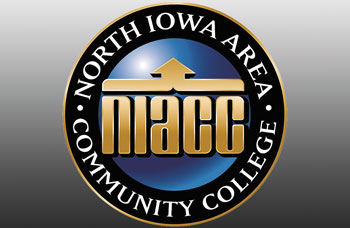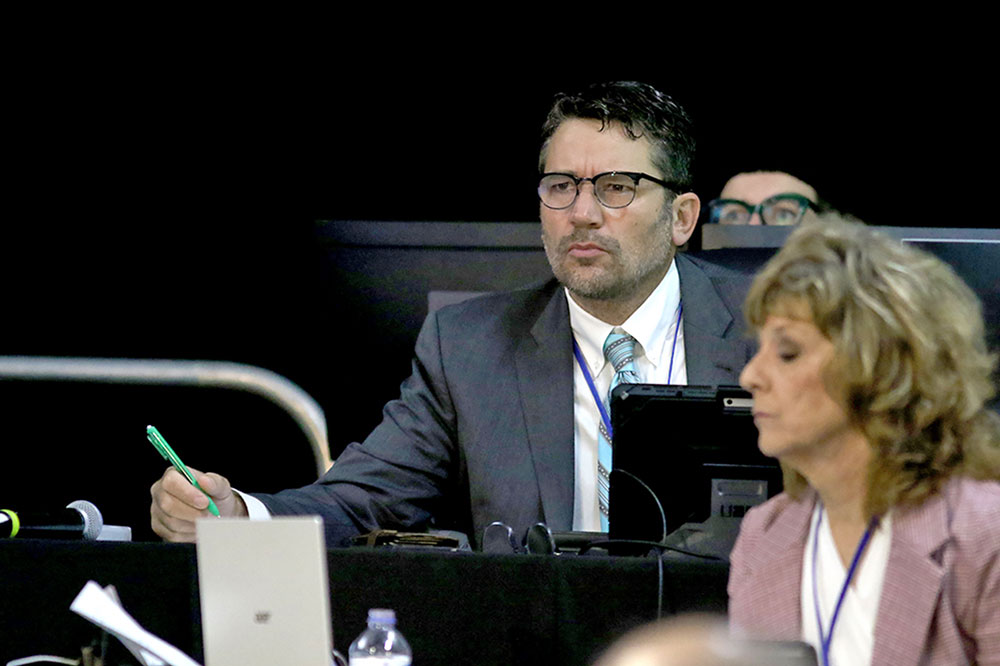Area lawmakers are wary about overhaul of AEAs

Salmon, Thomson spend bulk of time on education at Farm Bureau legislative forum
By Bob Fenske, editor@nhtrib.com
The two lawmakers who represent most of Floyd County in the Iowa House sounded Saturday like they would both like to tap the brakes on an overhaul of Iowa’s Area Education Agencies that has been a focal point of Gov. Kim Reynolds.
Like Reynolds, state Rep. Charley Thomson, of Charles City, and state Sen. Sandy Salmon, of Janesville, are Republicans, but during a legislative forum sponsored by the Chickasaw County Farm Bureau, the two legislators expressed reservations about overhauling the AEAs.
“As I’ve said all along, I’m not very happy with the AEA proposal,” Thomson said, “and I think they need to start over again basically. That’s my position in a nutshell.”
Salmon said she understands the governor’s concerns, but also thinks lawmakers may need more time on the issue.
“There appears to be but I don’t know why there would need to be,” Salmon said when one constituent asked if there was a “rush” to get the AEA bill done this year.
“I mean, we’re taking a multi-year approach on property taxes so I don’t know why we have to all of a sudden have to do something about the AEAs this year, except I know they’re concerned about the federal government coming in and monitoring,” she said.
The two GOP members covered a wide variety of issues, but discussion on education in general and the AEAs in particular took center stage.
Thomson represents House District 58, which includes all of Chickasaw County and most of Floyd and Bremer counties. Salmon represents Senate District 29, which includes all of Chickasaw, Bremer and Butler counties and most of Floyd County. Both legislators’ districts include all but Rockford and Rock Grove townships in Floyd County.
Salmon told the dozen or so residents who attended the forum that the governor’s concerns about AEAs included what Salmon called “administrative bloat,” concerns about Iowa’s special education test scores that could lead to federal monitoring, the lack of oversight for AEAs, and the idea that the wide-ranging services AEAs offer have led them away from their core missions.
But those wide-ranging services, Thomson said, should be seen as a positive. He compared the AEA services to rural electric cooperatives and rural telephone companies.
“The beauty of the co-op … is that businesses in rural Iowa don’t want to go to the last line, they don’t want to go to the most remote farmstead to put in your broadband, but the co-ops exist to do that,” he said. “The same theory in my view applies to AEAs. The AEAs are a system where Tripoli, the smallest of the school districts … pick a small town, even if you’re in Rudd, you can get pretty high-quality state services for your child at a far better price.”
Thomson added that “it appears the governor wants to move from a co-op model to a fee-for-service model, and I think that could easily leave the rural districts high and dry.”
Salmon agreed.
“You have a district like Tripoli or like Clarksville or maybe Turkey Valley or something like that, and they don’t get enough money to provide their own services. Without the pool of money … are those rural schools still going to provide those services? That’s the question, and that’s what we can’t get assurance about. That’s why I’ve not supported the bill so far.”
She also said she appreciates the fact that AEAs can help its member school districts in a relatively short amount of time.
“They can respond and help school districts very quickly – like almost turn on a dime – like they did with the Perry shooting,” she said.
The two legislators also said that the final funding for Iowa’s K-12 schools has yet to be determined. Both said it appears likely that lawmakers will agree to raise the minimum pay for the state’s teachers but said that the two chambers have yet to agree on an increase to State Supplemental Aid (SSA), the amount of funds school districts receive for each student they serve.
Reynolds, in her State of the State address two months ago, proposed a 2.5 percent increase but the House has approved a 3 percent increase in educational state aid.
Salmon said the Senate remains uncommitted about how large of an increase to SSA because of budget concerns.
“We don’t know how it’s going to fit with the budget to do the teacher’s salary increases, the school aid increase and whatever needs to be done to reform these AEAs,” she said. “There’s a lot of moving parts to that.”
The state senator said that work on the budget will begin in earnest this week after the Revenue Estimating Conference meets to set its projections for the state during the 2024-25 fiscal year.
“The three main areas are education, Medicaid and public safety,” she said, “and we’ll see where we end up. It’s the same as always: More requests come before us than taxpayers can fulfill.”
Other issues covered during the hour-long forum included:
• Both lawmakers expressed enthusiasm for the work lawmakers are doing when it comes to protecting Iowa farmland. They touted a new bill that Salmon said puts “more teeth” into state laws that do not allow foreign ownership of farmland, and they also say they support efforts that would not allow state agencies to outbid farmers for land.
“Nobody wants out-of-state interests or the state bidding against farmers for farmland,” he said, “because it distorts the market terribly.”
• Salmon touched on the controversy generated by House File 718, which was passed into law in 2023, and while counties and cities say they are struggling with its ramifications, Salmon said, at most, lawmakers may slightly alter the bill this year.
“We’ve had some blowback from counties and cities about that,” she said. “What we’re doing this year (is) we may tweak that bill some, but we’re going to let them go through a budget cycle to see how things work and then come back next year with the next step in the plan for the property taxes.”
• And Thomson again voiced his displeasure with so-called speed cameras, saying he thinks the state should outlaw them.
“The only people who are in favor of speed cameras are city officials, who like the money. They’re trying to combine that with the hands-free driving bill, which is a shotgun marriage of two proposals,” he said during the meeting, and he added later that “if they want to raise taxes, they should find another way to do it.”








Social Share